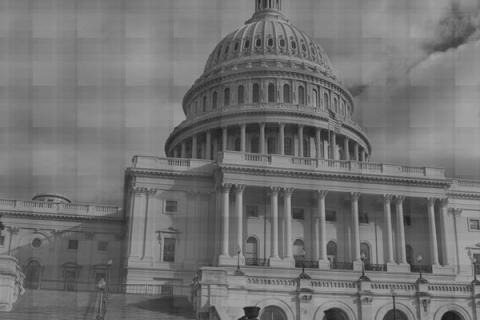When Governor Jerry Brown announced with his budget proposal the goal of realigning services from state to local agencies “who have the direct knowledge and interest to ensure that local needs are met,” many got behind the idea. But reality quickly set in for those worried about the extent of the financial burden that would be shifted along with those new responsibilities.
On Monday, Brown took the desperate step of signing AB 109 into law – a bill which gives the state authority to transfer thousands of prisoners to county jails while shifting various criminal justice functions to local governments. Why was this a desperate move? Brown signed the measure without legislation to fund it, something he said he wouldn't do. It also has Sheriffs quite irate.
The bill is a key component of Brown's new budget plan, but the state Assembly hasn't come to an agreement on how to pay for it. Brown wants to extend 2009 tax increases on sales, income and vehicles to fund the “realignment,” but Republicans have ardently opposed putting such a measure before voters in June, like Brown had hoped. Since AB 109 would have become law by default if he did not sign it before Tuesday, Brown sought to make good on his word in his signing statement:
"By its terms, Assembly Bill 109 will not go into effect until the creation of a community corrections grant program and an appropriation of funding. I will not sign any legislation that would seek to implement this measure without the necessary funding. In this regard, I intend to work closely with, and consult, police chiefs, sheriffs, chief probation officers, district attorneys and representatives of the counties and courts to ensure that any funding bill which makes Assembly Bill 109 operative is sufficient to protect public safety. Regrettably, the measure that would provide stable and constitutionally protected funding for public safety has not yet passed the Legislature. In the coming weeks, and for as long as it takes, I will vigorously pursue my plan to balance the State's budget and prevent reductions to public safety through a constitutional guarantee. I will also continue to partner with counties and law enforcement on this important effort."
Brown also signed AB 111, which he said would give counties access to more money for jail expansion. Unfortunately for county officials, the efficacy of this law hangs on another promise made by the governor – that he would push for more legislation that would reduce the cost of jail construction for local governments.
For the California State Sheriffs Association, any short-term funding guarantees will not be enough to prevent what spokesman Nick Warner says will be “a public safety nightmare” as counties are saddled with more and more state responsibilities and no constitutional amendment to fund them. This is something that Sheriffs (who conditionally endorsed the budget plan) have been demanding all along. If legislators don't promise a long-term revenue flow to local agencies, Sheriffs fear that felons might have to be released from already overcrowded county jails – felons who otherwise would have been housed in state facilities.
If Brown gets his June ballot wish, voters will be asked to extend two taxes worth $5.9 billion over five years. This money would go directly to local jurisdictions so that they may take over various criminal justice and welfare functions currently administered by the state.
The Governor's plan would be executed in phases as explained by Marisa Lagos of the San Francisco Chronicle:
“The first phase of realignment would focus mostly on public safety programs, such as court security, parole and juvenile justice. State officials also want to move social services such as welfare down to the county level. The exact details will be hashed out in the coming weeks and months.”

